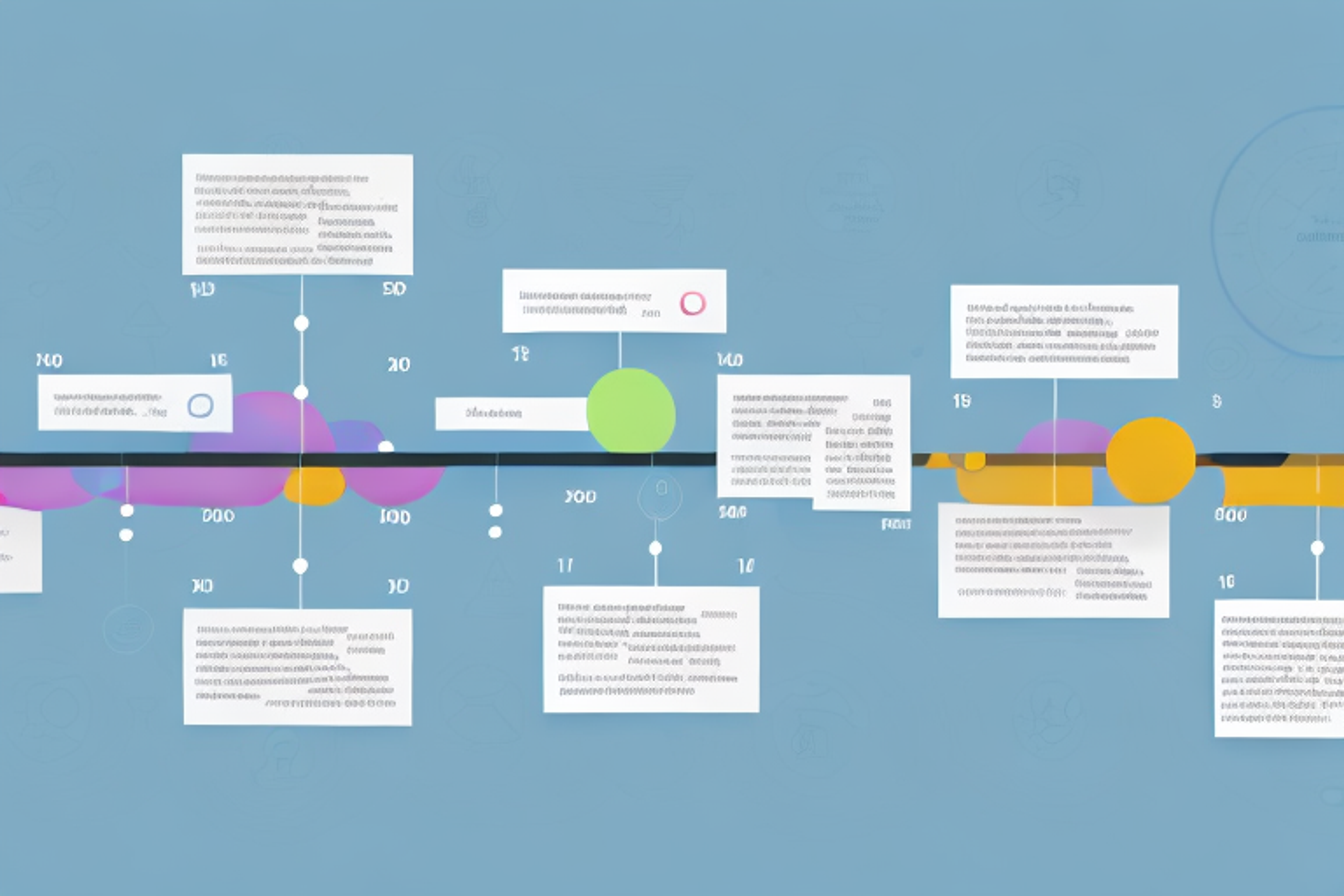
Join a free event
Learn from top coaches and industry experts in live, interactive sessions you can join for free.
Table of Contents
For anyone aspiring to pursue a graduate business degree, getting a top score on the GMAT is essential. But with a plethora of preparation materials available, it can be overwhelming to come up with a study plan that works best for you. Here, we'll outline a 6-month study plan that not only helps you achieve your target score of 800 but also helps you build a strong foundation in GMAT concepts. So, why is a 6-month study plan the best choice?
Why a 6-month study plan is the best choice for GMAT preparation
Six months is an optimal timeframe for several reasons. Firstly, it allows you to work through the extensive material at a reasonable pace, reducing the chances of burnout or stress. Secondly, it gives you adequate time to relearn concepts you may have forgotten or never learned. Finally, six months provides you with a buffer to overcome unexpected circumstances that can interfere with your study schedule.
Moreover, a 6-month study plan enables you to take practice tests at regular intervals, which is crucial for tracking your progress and identifying areas that need improvement. This way, you can adjust your study plan accordingly and focus on your weak spots. Additionally, a longer study period allows you to explore different study materials and methods, such as online courses, study groups, or private tutoring, to find what works best for you.
Furthermore, a 6-month study plan gives you enough time to develop good study habits and discipline, which are essential for success on the GMAT. You can establish a consistent study routine, set achievable goals, and track your progress. This way, you can build confidence and reduce test anxiety, knowing that you have put in the necessary effort and preparation. In summary, a 6-month study plan is the best choice for GMAT preparation, as it provides ample time, flexibility, and opportunities for improvement.
Setting realistic goals: How to determine your target GMAT score
The first step in creating a 6-month study plan is understanding your ideal target score. While an overall score of 800 is a desirable goal, it may not be realistic for everyone. The GMAT score range is 200-800, and your target score will depend on the average score of the institutions you're interested in.
It's important to research the average GMAT scores of the schools you're considering applying to. This information can usually be found on the school's website or through a quick Google search. Once you have this information, you can determine a realistic target score that will make you a competitive applicant. Keep in mind that some schools may place more emphasis on GMAT scores than others, so it's important to prioritize your study efforts accordingly.
Understanding the GMAT exam format and structure
To plan your study strategy effectively, you must also know the GMAT exam format and structure. The exam consists of four sections: Analytical Writing Assessment, Integrated Reasoning, Quantitative, and Verbal. Knowing the number of questions, test length, and time allocated per question will help you manage your time effectively during the exam.
It is important to note that the GMAT exam is a computer-adaptive test, meaning that the difficulty level of the questions adapts to your performance. This means that the first few questions will be of medium difficulty, and as you answer correctly, the questions will become more difficult. Conversely, if you answer incorrectly, the questions will become easier. Understanding this adaptive format can help you stay calm and focused during the exam, as you can trust that the questions are tailored to your ability level.
Top GMAT test-taking strategies to boost your score
While mastering the concept is essential, knowing some test-taking strategies can vastly improve your score. For instance, triaging questions and dedicating more time to harder questions is a winning strategy. Moreover, familiarizing yourself with the exam's navigation and mark and review functionality can add significant points to your score.
Another effective strategy is to eliminate answer choices that are clearly incorrect. This can help you narrow down your options and increase your chances of selecting the correct answer. Additionally, pacing yourself during the exam is crucial. You don't want to spend too much time on one question and risk not having enough time to answer the rest of the questions.
It's also important to stay calm and focused during the exam. If you feel yourself getting anxious or overwhelmed, take a deep breath and refocus your attention. Remember that you have prepared for this exam and have the knowledge and skills to succeed. By staying calm and focused, you can approach each question with a clear mind and increase your chances of getting a high score.
Building a solid foundation in GMAT math concepts and formulas
No matter how many tricks you know, GMAT math questions are fundamentally based on certain concepts and formulas. Building a solid foundation in math concepts and formulas is crucial for success on the Quantitative section. Ensure to work through numbers, geometry, algebra, and probability to cover all bases.
Additionally, it is important to understand how to apply these concepts and formulas in real-world scenarios. The GMAT often presents math problems in the context of business or economics, so it is helpful to have a strong understanding of these fields as well. Practice problems that incorporate both math concepts and business scenarios to fully prepare for the Quantitative section of the GMAT.
How to master GMAT verbal reasoning and critical thinking skills
Besides Mathematics, the GMAT also tests your verbal reasoning and critical thinking skills. To excel on the Verbal section, you need to master grammar rules, build a strong vocabulary, comprehend passages quickly, and improve your critical reasoning skills. Practice reading comprehension passages and argument essays to strengthen your Verbal Skills.
One effective way to improve your verbal reasoning and critical thinking skills is to read extensively. Reading a variety of materials such as newspapers, magazines, and books can help you build your vocabulary and improve your comprehension skills. Additionally, reading different types of texts can expose you to different writing styles and perspectives, which can help you develop your critical thinking skills.
Another important aspect of mastering GMAT verbal reasoning and critical thinking skills is to practice regularly. Set aside time each day to work on practice questions and passages. This will help you build your speed and accuracy, as well as identify areas where you need to improve. Remember, practice makes perfect!
Effective time management techniques for the GMAT exam day
Effective time management is fundamental to score high on the GMAT. To maximize your score, you must learn to manage your time effectively. Practices like batching questions and managing your time according to the exam section can help you achieve your target score.
The importance of taking practice tests and analyzing your results
The best way to understand your progress is by taking practice tests regularly. It will help you identify areas that require more attention, build your stamina and test-taking confidence. Similarly, analyzing your results can help you identify the areas in which you need more practice and adjust your study plan accordingly.
Utilizing GMAT prep resources and materials to enhance your study plan
The GMAT offers an array of resources, including study materials, online forums, and practice tests, to help you study effectively. Ensure that you take advantage of these resources to enhance your study plan.
Overcoming test anxiety and stress during the GMAT exam
Test anxiety can significantly affect your GMAT score. Try different stress reduction techniques such as meditation, or deep breathing exercises, and implement them during your study plan. Further, familiarizing yourself with the exam format and test-taking best practices can reduce anxiety during the exam.
Tips for choosing the right MBA program based on your GMAT score
Your GMAT score plays an essential role in determining the MBA program you will be accepted into. Research and consider the average GMAT score of the business schools you're interested in before applying. Ensure you apply to business schools that align with your career goals and interests regardless of the GMAT score.
Celebrating your success: How to stay motivated throughout your 6-month study plan
This 6-month GMAT study plan can be demanding, but staying motivated and keeping the end goal in sight is crucial. Celebrate your progress with small wins throughout the study plan, such as reaching a specific score, as it can help you stay motivated and energized throughout this long and arduous process.
Common mistakes to avoid during GMAT preparation
Several common mistakes can hinder you from achieving your desired GMAT score. Some of them include underestimating the importance of test-taking strategy, not getting enough rest before the exam, and ignoring areas where you require more practice. Avoiding these common mistakes will help you remain focused and achieve your target score.
Q&A with Successful GMAT Test-takers: Insights and tips for acing the exam
Finally, we have compiled insights and tips from successful GMAT test-takers to help you ace the exam. These strategies range from test-taking tactics to things you can do outside of standardized test preparation. Take note of tips such as managing your energy levels and focus during the exam, preparing adequately, and maintaining a disciplined approach to study.
In summary, this 6-month study plan requires immense dedication and focus, but it's an efficient way to achieve the optimal GMAT score. By setting realistic goals, understanding the GMAT format and structure, and utilizing study resources effectively, you can pass the GMAT exam with confidence. Follow these tips, and we believe that you can obtain the elusive 800 score and elevate your business school application to the next level.
Browse hundreds of expert coaches
Leland coaches have helped thousands of people achieve their goals. A dedicated mentor can make all the difference.



















